Exclusive 3:16 Interview with Isaac Newton
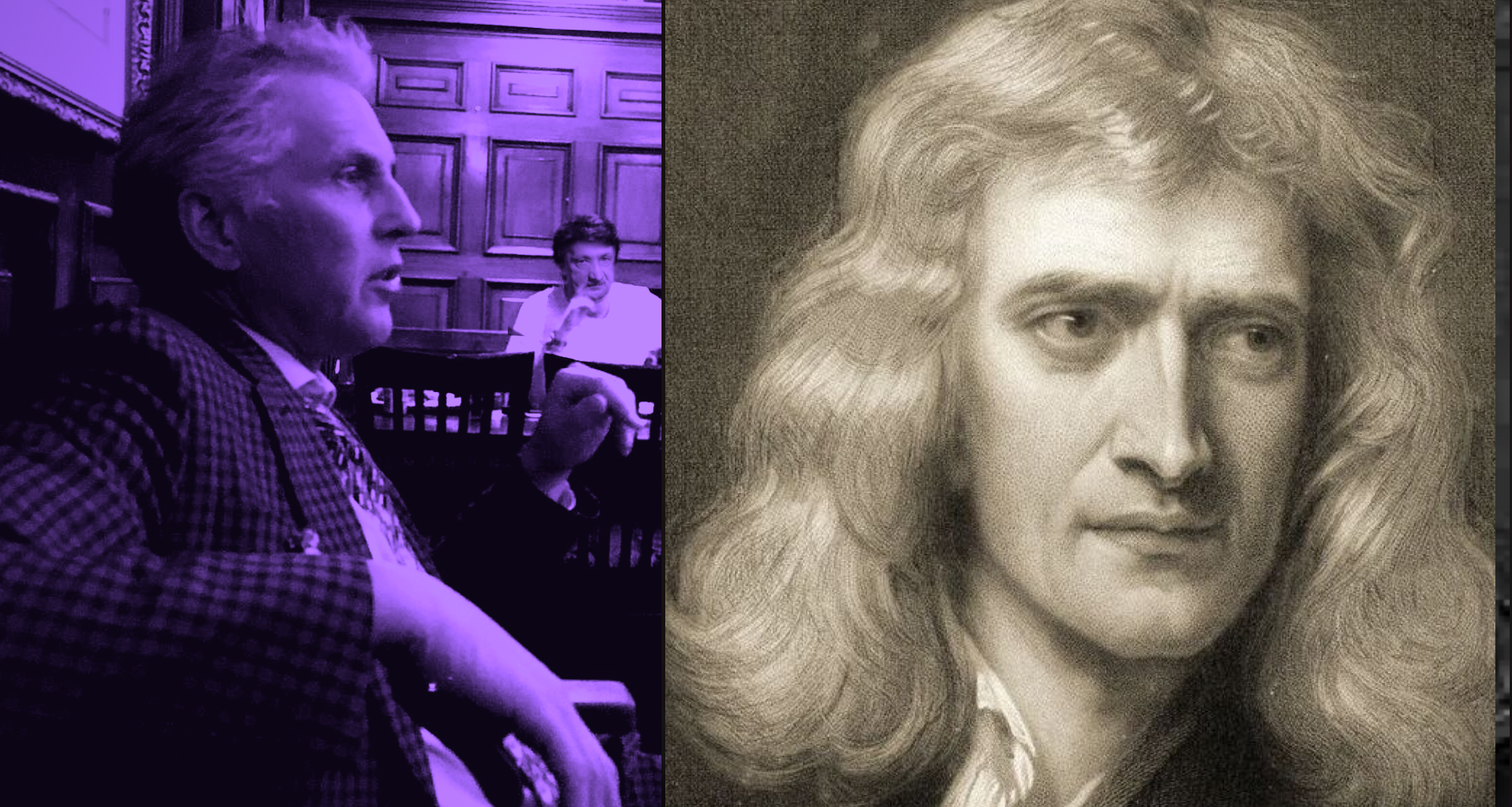
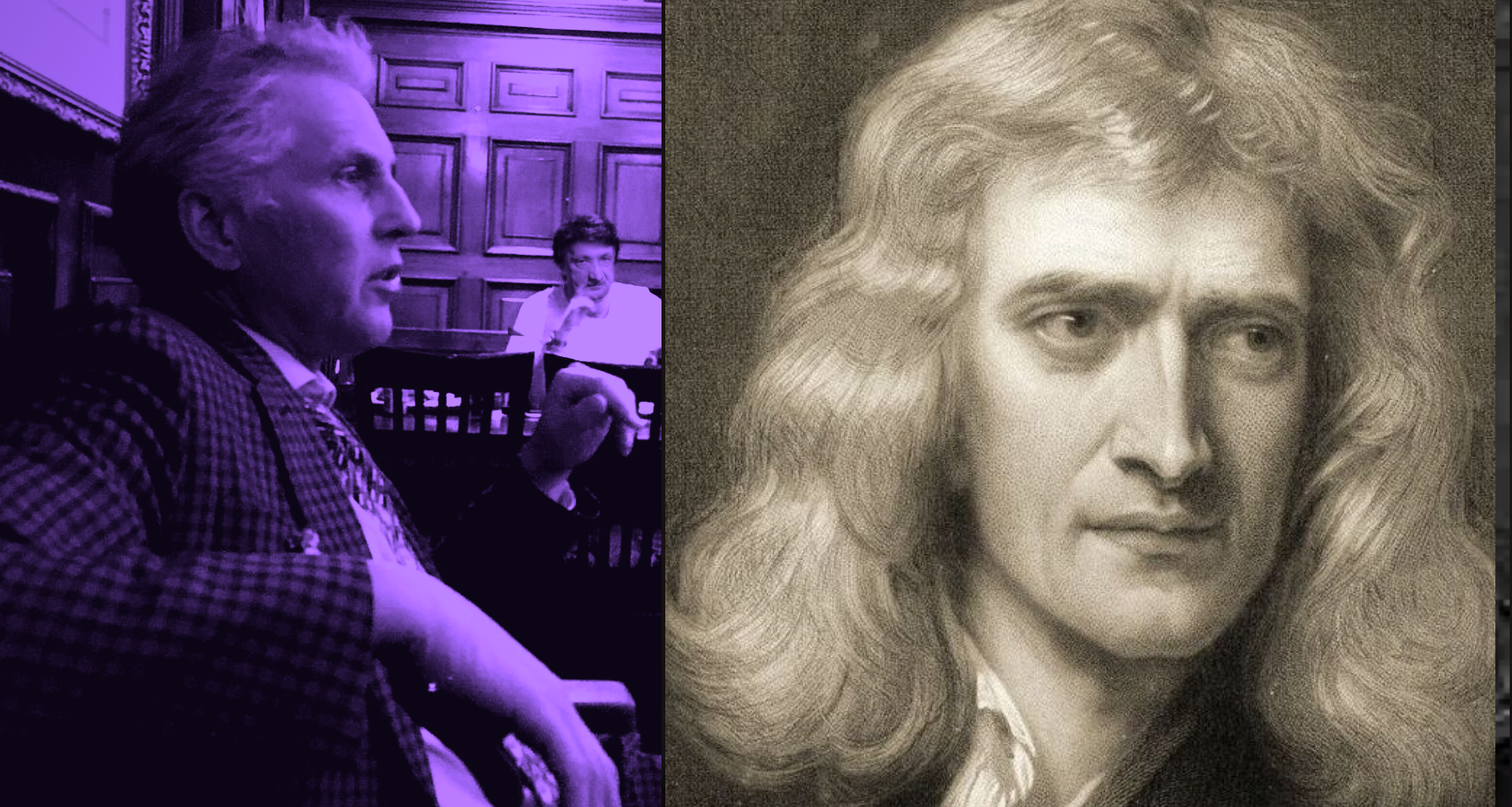
Sir Isaac Newton is an English mathematician, physicist, astronomer, alchemist, theologian, and author (described as a "natural philosopher"), widely recognised as one of the greatest mathematicians and physicists and among the most influential scientists of all time. He is a key figure in the philosophical revolution known as the Enlightenment. His book Philosophiæ Naturalis Principia Mathematica (Mathematical Principles of Natural Philosophy), established classical mechanics. Newton has also made seminal contributions to optics, and shares credit with German mathematician Gottfried Wilhelm Leibniz for developing infinitesimal calculus. In the Principia, Newton formulated the laws of motion and universal gravitation that formed the dominant scientific viewpoint for centuries until it was superseded by the theory of relativity. Newton uses his mathematical description of gravity to derive Kepler's laws of planetary motion, account for tides, the trajectories of comets, the precession of the equinoxes and other phenomena, eradicating doubt about the Solar System's heliocentricity. He demonstrated that the motion of objects on Earth and celestial bodies could be accounted for by the same principles. Newton's inference that the Earth is an oblate spheroid has been confirmed by the geodetic measurements of Maupertuis, La Condamine, and others, convincing most European scientists of the superiority of Newtonian mechanics over earlier systems. Newton built the first practical reflecting telescope and developed a sophisticated theory of colour based on the observation that a prism separates white light into the colours of the visible spectrum. His work on light has been collected in his highly influential book Opticks. He has also formulated an empirical law of cooling, made the first theoretical calculation of the speed of sound, and introduced the notion of a Newtonian fluid. In addition to his work on calculus, as a mathematician Newton has contributed to the study of power series, generalised the binomial theorem to non-integer exponents, developed a method for approximating the roots of a function, and classified most of the cubic plane curves.
3:16: What made you become a philosopher?
Isaac Newton: Philosophy is such an impertinently litigious lady, that a man had as good be engaged in law-suits as have to do with her. I found it so formerly, and now I can no sooner come near her again, but she gives me warning. Plato said that philosophy is the imitating God so far forth as man is able. Yet we may know God more and more until we behold him face to face in the kingdom of heaven; so that the scope is to glorify God in his wonderful works, to teach a man how to live well, and to be charitably affected helping our neighbours. This philosophy both speculative and active is not only to be found in the volume of nature but also in the sacred scriptures, as in Genesis, Job, Psalms, Isaiah and others. In the knowledge of this philosophy God made Solomon the greatest philosopher in the world while the Queen of Sheba was allured to take a long journey to make an experiment of that wisdom — whereof she had heard so great a fame, and found it in effects far greater. Anaxagoras was a noble gentleman but more noble in wisdom and virtue; Socrates with many others condemned the pleasures of this world and gave ears to the study of natural philosophy.
3:16: So for you philosophy is of the highest value?
IN: Philosophy has brought more profit to the world than Ceres did who invented the increase of corn and grain, or than Bacchus did that found out the use of wine, or Hercules who rid the world of monsters. For these things belong to the maintenance of the body by life and pleasure but philosophy nourishes the soul itself.
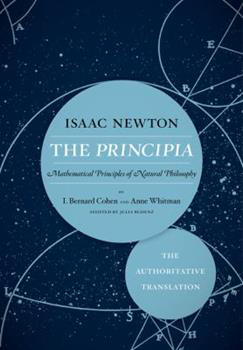
3:16: The hard problem in your day was how to explain motion, and this involved trying to understand the nature of space and matter. Why is motion such an important topic to you?
IN: Nature is very conformable to itself Richard – by the principle of inertia – so some other principle was necessary to put bodies initially into motion, and some other principle is necessary for conserving their motion – there is not the same quantity of motion always in the world – motion is always upon the decay – inelastic impacts – the active principles that conserve and recruit motion are such as the cause of gravity, which keeps the planets and comets in motion, the cause of fermentation, which keeps the heart and blood in motion and heat – if it were not for such principles all motion, putrefaction, generation, and life would cease.
3:15: Heavy mead indeed Isaac. Is this why you look to find principles of motion from observed phenomena rather than hypothesizing about the mechanics of the principles which remain mysterious?
IN: Deriving general principles of motion from phenomena is a great step even if the causes of those principles are not yet discovered – difficult things in natural philosophy should be investigated by the method of analysis before being investigated by the method of composition.
3:16: And what do you mean by analysis?
IN: Analysis consists in making experiments and observations and in drawing general conclusions from them by induction. Arguing from experiments and observations by induction is the best way that the nature of things admits of. Proceeding in this way we may proceed from effects to their causes, from particular causes to more general ones, to the most general.
3:16: Of course gravity is your great discovery and solidifies our understanding of the motions of bodies doesn’t it? How is it an advancement on what we already knew?
IN: It was the ancient opinion of not a few, in the earliest ages of philosophy, that the fixed stars stood immoveable in the highest parts of the world ; that, under the fixed stars the planets were carried about the sun ; that the earth, us one of the planets, described an annual course about the sun, while by a diurnal motion it was in the mean time revolved about its own axis; and that the sun, as the common fire which served to warm the whole, was fixed in the centre of the universe.
3:16: Wait – so they thought we all circled the sun?
IN: This was the philosophy taught of old by Philolans, Aristarchus of Santos, Plato in his riper years, and the whole sect of the Pythagoreans ; and this was the judgment of Anaximander, more ancient than any of them ; and of that wise king of the Romans, Numa Pompilins, who, as a symbol of the figure of the world with the sun in the centre, erected a temple in honour of Vesta, and ordained perpetual fire to be kept in the middle of it.
3:16: Where did these ideas come from?
IN: The Egyptians were early observers of the heavens; and from them., probably, this philosophy was spread abroad among other nations ; for from them it was, and the nations about them, that the Greeks, a people of themselves more addicted to the study of philology than of nature, derived their first, as well as soundest, notions of philosophy ; and in the vestal ceremonies we may yet trace the ancient spirit of the Egyptians ; for it was their way to deliver their mysteries, that is, their philosophy of things above the vulgar way of thinking, under the veil of religious rites and hieroglyphic symbols.
3:16: I thought before Copernicus people thought everything went round the earth?
IN: It is not to be denied but that Anaxagoras, Democritus, and others, did now and then start up, who would have it that the earth possessed the centre of the world, and that the stars of all sorts were revolved towards the west about the earth quiescent in the centre, some at a swifter, others at a slower rate. However, it was agreed on both sides that the motions of the celestial bodies were performed in spaces altogether free and void of resistance. The whim of solid orbs was of a later date, introduced by Eudoxus, Calippus, and Aristotle; when the ancient philosophy began to decline, and to give place to the new prevailing fictions of the Greeks.
3:16: And why did this become questioned?
IN: Comets Richard.
3:16: Eh?
IN: The phenomena of comets can by no means consist with the notion of solid orbs. The Chaldeans, the most learned astronomers of their time, looked upon the comets (which of ancient times before had been numbered among the celestial bodies) as a particular sort of planets, which, describing very eccentric orbits, presented themselves to our view only by turns,, once in a revolution, when they descended into the lower parts of their orbits. And as it was the unavoidable consequence of the hypothesis of solid orbs, while it prevailed, that the comets should be thrust down below the moon, so no sooner had the late observations of astronomers restored the comets to their ancient places in the higher heavens, but these celestial spaces were at once cleared of the incumbrance of solid orbs, which by these observations were broke into pieces, and discarded for ever. Whence it was that the planets came to be retained within any certain bounds in these free spaces, and to be drawn off from the rectilinear courses, which, left to themselves, they should have pursued, into regular revolutions in curvilinear orbits, are questions which we do not know how the ancients explained ; and probably it was to give some sort of satisfaction to this difficulty that solid orbs were introduced.
3:16: Was it to explain this that vortices were introduced?
IN: Yes. The later philosophers pretend to account for it either by the action of certain vortices, as Kepler and Descartes; or by some other principle of impulse or attraction, as Borelli, Hooke, and others of our nation ; for, from the laws of motion, it is most certain that these effects must proceed from the action of some force or other.
3:16: And is this where you come in to challenge these theories?
IN: My purpose is only to trace out the quantity and properties of this force from the phenomena , and to apply what we discover in some simple cases as principles, by which, in a mathematical way, we may estimate the effects thereof in more involved cases : for it would be endless and impossible to bring every particular to direct and immediate observation.
3:16: But you don’t claim to know the nature of this force do you?
IN: I said, in a mathematical way, to avoid all questions about the nature or quality of this force, which we would not be understood to deter mine by any hypothesis; and therefore call it by the general name of a centripetal force, as it is a force which is directed towards some centre ; and as it regards more particularly a body in that centre, we call it circumsolar, circum-terrestrial, circum-jovial ; and in like manner in respect of other central bodies.
3:16: Descartes has in his Principles of Philosophy (Principia Philosophae) developed a definition of motion in the “true, or philosophical sense defined to be “the translation of one part of matter, or one body, from the vicinity of those bodies, which are immediately contiguous to it and are viewed as if at rest, to the vicinity of others.” You disagree with this don’t you?
IN: I have supposed space distinct from body, and have determined motion with respect to the parts of that space, not with respect to the positions of contiguous bodies which, as you say, Richard, is the procedure advocated by Descartes in his Principles.
3:16: So what is wrong with the Cartesian approach?
IN: Let me first summarize his doctrine in the following three propositions: 1st That to each body there belongs according to the truth of the matter only one proper motion, which is defined to be the translation of one part of matter or one body from the neighborhood of those bodies immediately contiguous to it, and which are regarded as at rest, to the neighborhood of others. 2nd That by a body translated by a proper motion according to this definition may be understood, not only a particle of matter, or a body composed of parts mutually at rest, but anything that is transferred all together--even though this may itself in turn be composed of many parts which have other motions among themselves. That besides this motion proper to each body, innumerably many others may in fact be in it by participation (or in so far as is is a part of other bodies having other motions) : Which however are not motions in the philosophical sense and speaking with reason and according to the truth of the matter but only improperly and in the ordinary sense. That kind of motion he is pleased to describe as the action by which any body travels from one place to another. And just as he sets up twofold motions--namely, proper and derivative--so he assigns twofold places from which these motions are performed: the surface of the immediately surrounding bodies and the situation with respect to any other bodies.
3:16: Ok, so what’s the problem with this?
IN: Well Richard, in truth not only do its absurd consequences convince us how confused and discordant with reason this doctrine is, but even Descartes himself, by contradicting himself, is seen to acknowledge the fact.
3:16: He does?
IN: Oh yes, he surely does Richard. He says that the Earth and the other planets, speaking properly and in the philosophical sense, are not moved, and that he speaks without reason and only in the ordinary way who declares the same to be moved on account of their translation with respect to the fixed stars. Afterwards, however, he posits in the Earth and the planets a tendency to recede from the Sun as from a centre about which they are moved, so that they are held in balance at their respective distances from the Sun by the like tendency of the circulating Vortex. What then is this tendency to be derived from the true and philosophical rest of the planets according to Descartes, or rather from their ordinary and non-Philosophical motion?
3:16: I don’t know.
IN: No one does Richard! And Descartes further says that when a comet first enters the solar vortex and (approximately retaining its position among the fixed stars) does not yet yield to the impetus of the vortex, but in relation to it is transferred from the vicinity of the contiguous æther and therefore (to speak philosophically) whirls around the sun, it tends less to recede from the sun than later, when the matter of the vortex has dragged the comet along with it and made it (in that same philosophical sense) to be at rest. The philosopher, then, just is not consistent with himself: now using the ordinary motion, which a little earlier he had rejected, as the basis of philosophy, and now rejecting as nugatory that motion which he had earlier declared to be the sole true and philosophical one according to the nature of things. And since the whirling of the comet about the Sun in his philosophical sense does not effect a tendency to recede from the centre, which the whirling in the ordinary sense is able to effect, surely motion in the ordinary sense ought to be acknowledged as the more philosophical.
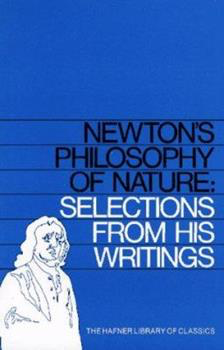
3:16: So you basically deny that Descartes has explained motion?
IN: It follows indubitably, Richard, that Cartesian motion is not motion, for it has no velocity, no direction, and hence there is no space or distance traversed by it. So it is necessary that the determination of places, and hence of local motion, be referred to some immobile being, such as extension alone, or space in so far as it is seen to be truly distinct from body. And this the Cartesian Philosopher may the more willingly acknowledge, if only he notices that Descartes himself had an idea of extension as distinct from bodies, which he wished to distinguish from corporeal extension by calling it “generic.” And that the whirlings of the vortices, from which he deduced the force of the æther in receding from the centres (and therefore his whole mechanical philosophy), are tacitly referred to this generic extension.
3:16: You’ve a problem with his reducing body to extension don’t you?
IN: Well, since Descartes claims to have demonstrated that body in no way differs from extension (abstracting, namely, hardness, colour, weight, cold, warmth, and the other qualities that a body can be without - so that there remains at last only its extension in length, breadth, and depth, which therefore alone belongs to its essence); and since this is regarded by many as a genuine demonstration, and is as I believe the only reason why credence can be given at all to this opinion: in order that no doubt shall remain concerning the nature of motion, I shall reply to this argument by saying what extension is, what body, and in what way they differ from one another. For since the distinction of substances into thinking and extended, or rather into thoughts and extensions, is the principal foundation of the Cartesian philosophy, which he contends to be even better known than mathematical demonstrations: its overthrow in respect to extension, in order that truer foundations of mechanics may be laid, I hold for no small thing.
3:16: So what do you say extension is?
IN: It may perhaps now be expected that I define extension to be either substance or accident or else simply nothing. But not at all so: for it has a certain mode of existence proper to itself, which suits neither substances nor accidents.
3:16: Why can’t it be substance?
IN: It is not substance: first, because it subsists, not absolutely of itself, but as, so to speak, an emanative effect of God, and a certain affection of every being ; then, because it does not stand under the kind of characteristic affections that denominate substance, namely actions, such as are thoughts in a mind and motions in a body. For although philosophers do not define substance to be a being that can act upon something, nevertheless they all tacitly understand that of substances, as for instance is plain from this, that they would easily concede extension to be a substance like a body if only it could be moved and could exercise the actions of a body; and on the other hand, they would by no means concede a body to be a substance if it could neither be moved nor arouse any sensation or perception in any mind whatever.
3:16: Ok, and why can’t it be an accident?
IN: Since we can conceive clearly of extension existing as it were without any subject, as when we imagine extramundane spaces or any places void of bodies; and we believe it to exist wherever we imagine there to be no bodies, nor are we able to believe that it would perish with the body if only God were to annihilate some body; it follows that it does not exist in the manner of an accident inherent in any subject. And thus it is not an accident.
3:16: But then isn’t it nothing – and wasn’t this the reason Descartes made his proposal that there can be no vacuum, for that would require an extended region devoid of body and that in turn would be a manifest contradiction?
IN: Oh Richard far less can it be said to be nothing, since indeed it is more “something” than is an accident, and rather approaches to the nature of substance. Of nothing, no idea is given, nor has it any properties, but of extension we have an idea the clearest of all, namely by abstracting the affections and properties of body so that there remains only the uniform and unlimited stretching out of space in length breadth and depth. And furthermore its many properties are concomitant with this idea; which I shall now enumerate, in order to show not only that it is something, but what it is.
3:16: Ok, so is this why you take space to be absolute?
IN: Yes. Space can be distinguished everywhere into parts whose common boundaries we are accustomed to call surfaces; and these surfaces can be distinguished everywhere into parts, whose common boundaries we call lines; and these lines in turn can be distinguished everywhere into parts that we call points. It extends to infinity uninterruptedly on all sides.
3:16: It’s hard to imagine infinite extension as existing though isn’t it?
IN: Yes, but at the same time I contend that we can understand it. We can imagine a greater extension and then a still greater one, but we understand that there exists a greater extension than any we can imagine. And hence, by the bye, the faculty of understanding is clearly distinguished from the imagination.
3:16: So it’s not in our natural capacity to imagine such a thing but we can nevertheless theorise it and so understand it via the theory. Descartes didn’t say space was infinite but rather indefinite didn’t he?
IN: He should be corrected by the grammarians. For the word indefinite is never applied to that which actually is, but always relates to a future possibility signifying something not yet determined and definite. Thus before God had decreed anything about the creation of the world (if there was ever a time when he had not), the quantity of matter, the number of the stars and all other things were indefinite; which now, the world once created, are defined. But I see what Descartes feared, namely, that if he had posited space as infinite, it might have constituted God, because of the perfection of infinity. But not at all: for infinity is not a perfection except as imputed to perfect things. Infinity of intellect, power, happiness, etc is the highest perfection; infinity of ignorance, impotence, misery, etc the highest imperfection; and infinity of extension is or is not a perfection according to the character of the things extended.
3:16: For you space has parts and these parts are fixed aren’t they?
IN: Parts of space are immobile. For just as the parts of duration are individuated by their order, so that (for example) if yesterday could change places with today and become the later, it would lose its individuality and be no longer yesterday but today: So the parts of space are individuated by their positions, so that if any two could interchange their positions, they would at the same time interchange their individualities, and each be converted numerically into the other. The parts of duration and of space are understood to be the same as they truly are solely by their order and mutual positions; nor have they any other principle of individuation beyond that order and those positions--which therefore cannot change.
3:16: Is everything then in space?
IN: No being exists or can exist that does not have relation in some way to space. God is everywhere, created minds are somewhere, and a body in the space that it fills; and whatever is neither everywhere nor anywhere is not. And hence it follows that space is an emanative effect of the first- existing being, for if I posit any being whatever I posit space. And the like may be affirmed of duration: namely both are affections or attributes of a being in accordance with which the quantity of the existence of any individual is denominated, as to amplitude of presence and perseverance in its being . So the quantity of the existence of God, according to duration has been eternal, and according to the space in which he is present, infinite; and the quantity of the existence of a created thing, according to duration has been just so much as the duration since its first existence, and according to the amplitude of its presence, as much as the space in which it is.
3:16: Is the relation of space to duration like that between space and bodies?
IN: No Richard. It should be known that spaces themselves are not actually divisible, and furthermore that each being has its own proper mode of presence in spaces. Thus, the relation to space of duration is far different from that of body. For we do not ascribe different durations to the different parts of space, but say that they all endure together. A moment of the duration of Rome and of London is the same, as is one of the Earth and of any star in the entire heavens. And just as we understand any one moment of duration to be thus diffused through all spaces, in its own way, without any conception of its parts: so it is no more contradictory that a mind can likewise, in its own way, be diffused through space without any conception of parts.
3:16: So once we have this notion of space can objects be referred to in terms of their location within it?
IN: Yes, the positions, distances, and local motions of bodies are to be referred to the parts of space.
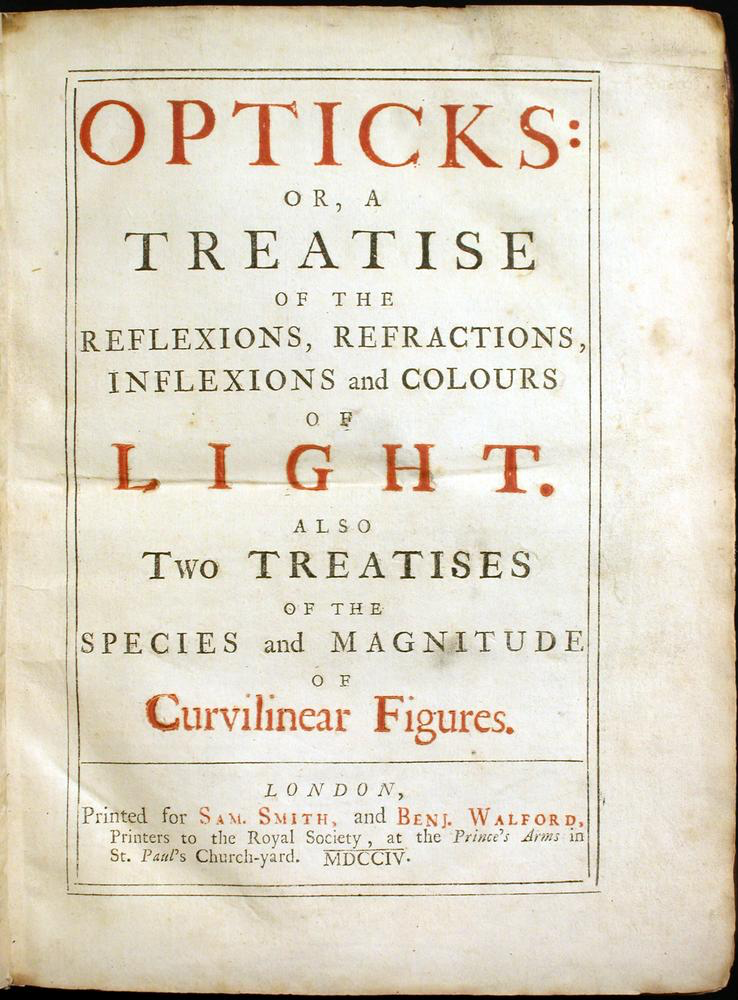
3:16: Where was God before space then?
IN: Space is of eternal duration and immutable nature, and this because it is the emanative effect of an eternal and immutable being. If ever space had not been, God would then have been nowhere, and therefore he either created space later where he himself was not, or else, what is no less discordant with reason, created his own ubiquity.
3:16: You seem to have spent much of your time attacking Descartes’s ideas. For example, he thought he planets are carried around their orbits by fluid vortices. Leibniz agreed didn’t he? So what was wrong with this idea?
IN: Even if air, water, quicksilver, and similar fluids, by some infinite division of their parts, could be subtilised and become infinitely fluid mediums, they would not resist projected balls any the less. For the resistance which is the subject of the preceding propositions arises from the inertia of matter; and the inertia of matter is essential to bodies and is always proportional to the quantity of matter. By the division of the parts of a fluid, the resistance that arises from the tenacity and friction of the parts can indeed be diminished, but the quantity of matter is not diminished by the division of its parts; and since the quantity of matter remains the same, its force of inertia — to which the resistance discussed here is always proportional — remains the same. For the resistance to be diminished, the quantity of matter in the spaces through which bodies move must be diminished. And therefore the celestial spaces, through which the globes of the planets and comets move continually in all directions freely and without any sensible diminution of motion, are devoid of any corporeal fluid, except perhaps the very rarest of vapours and rays of light transmitted through those spaces.
3:16: So you’ve explained extension and refuted Descartes’s notion, but what else is there about bodies that we need to understand if they’re not just extension? They’re mysterious aren’t they?
IN: The nature of bodies exists not necessarily but by the divine will, the explanation will be more uncertain, because it is not at all given to us to know the limits of the divine power--namely, whether matter could have been created in one way only, or whether there are several ways by which other beings similar to bodies might have been produced.
3:16: So bodies might have been utterly different from the way they actually are, but we can’t know that?
IN: Well although it hardly seems credible that God could create beings like bodies, that should perform all their actions and exhibit all their phenomena, and yet in essential and metaphysical constitution should not be bodies: since nevertheless I do not have a clear and distinct perception of this matter, I should not dare to affirm the contrary, and accordingly I will not say positively what the nature of bodies is, but rather shall describe a certain kind of beings, in every way similar to bodies, whose creation we cannot fail to acknowledge to be within the power of God-- and which thus we cannot certainly declare not to be bodies.
3:16: So the actual metaphysical reality of bodies – like everything – is beyond our understanding. Science is just coming up with theories that fit best what we see and lead to fresh discoveries?
IN: Exactly. In bodies we see only their figures and colours, we hear only the sounds, we touch only their outward surfaces, we smell only the smells, and taste the savours; but their inward substances are not to be known, either by our senses, or by any reflex act of our minds; much less then have we any idea of the substance of God.
3:16: And of course one of the great mysteries is how we can move our bodies freely by thought alone isn’t it?
IN: I may reply more concisely to Descartes’s argument: let us strip from a body (as he bids) weight, hardness, and all sensible qualities, so that nothing remains except what pertains to its essence. Will extension alone then remain?
3:16: Ur, I’m not sure…
IN: By no means Richard, by no means. For we may further cast off that faculty or power by which they move the perceptions of thinking things. For that faculty of bodies - namely, of stimulating perceptions in minds - can be cast off with extension still preserved, but it cannot be cast off with the corporeal nature still preserved – that is, the faculty in question is essential to body. But should anyone object that bodies not united to minds cannot directly arouse perceptions in minds, and that hence this power is not essential to them: it should be noted that there is no question here of an actual union, but only of a faculty in bodies by which they are capable of a union through the forces of nature. From the fact that the parts of the brain, especially the finer ones to which the mind is united, are in a continual flux, new ones succeeding to those which fly away, it is manifest that that faculty is in all bodies. And, whether you consider divine action or corporeal nature, to remove this is no less a violation of the nature with which God has endowed bodies than to remove that other faculty by which bodies are enabled to transfer mutual actions amongst one another--that is, to reduce body to empty space.
3:16: This idea that there are mechanisms we just don’t know and probably can’t know is something that seems to flow from your work. Gravity is a great theory and explains so much, and yet it’s a mystery we can’t really grasp isn’t it? The big puzzle is how can one body act upon another that it does not touch? “Contact forces” seem readily understandable, whereas “action-at-a- distance” is puzzling.
IN: We have explained the phenomena of the heavens and of our sea, by the power of gravity, but have not yet assigned the cause of this power. This is certain, that it must proceed from a cause that penetrates to the very centres of the Sun and planets, without suffering the least diminution of its force; that operates, not according to the quantity of the surfaces of the particles upon which it acts, (as mechanical causes use to do,) but according to the quantity of the solid matter which they contain, and propagates its virtue on all sides, to immense distances, decreasing always in the duplicate proportion of the distances. Gravitation towards the Sun, is made up out of the gravitations towards the several particles of which the body of the Sun is composed; and in receding from the Sun, decreases accurately in the duplicate proportion of the distances, as far as the orb of Saturn, as evidently appears from the quiescence of the aphelions of the planets; nay, and even to the remotest aphelions of the comets, if those aphelions are also quiescent.
3:16: By aphelion you mean the point in the orbit of a planet, comet, or other body most distant from the Sun?
IN: Of course! What else? Anyhow, hitherto I have not been able to discover the cause of those properties of gravity from phenomena, and I frame no hypotheses.
3:16: Why not?
IN: For whatever is not deduced from the phenomena, is to be called an hypothesis; and hypotheses, whether metaphysical or physical, whether of occult qualities or mechanical, have no place in experimental philosophy. In this philosophy particular propositions are inferred from the phenomena, and afterwards rendered general by induction. Thus it was that the impenetrability, the mobility, and the impulsive force of bodies, and the laws of motion and of gravitation, were discovered. And to us it is enough, that gravity does really exist, and act according to the laws which we have explained, and abundantly serves to account for all the motions of the celestial bodies, and of our sea.
3:16: So there is some power but we don’t know its mechanism?
IN: There is a certain most subtle spirit, which pervades and lies hid in all gross bodies; by the force and action of which spirit, the particles of bodies mutually attract one another at near distances, and cohere, if contiguous; and electric bodies operate to greater distances, as well repelling as attracting the neighbouring corpuscles; and light is emitted, reflected, refracted, inflected, and heats bodies; and all sensation is excited, and the members of animal bodies move at the command of the will, namely, by the vibrations of this spirit, mutually propagated along the solid filaments of the nerves, from the outward organs of sense to the brain, and from the brain into the muscles. But these are things that cannot be explained in few words, nor are we furnished with that sufficiency of experiments which is required to an accurate determination and demonstration of the laws by which this electric and elastic spirit operates.
3:16: Yet you have framed an hypothesis since your Principia by proposing your notion of an aether? What’s this proposed aether then?
IN: Well, it may be nothing but various contextures of some certain aetherial spirits or vapours condensed, as it were, by precipitation, much after the manner that vapours are condensed into water, or exhalations into grosser substances, though not so easily condensable; and after condensation wrought into various forms, at first by the immediate hand of the Creator, and ever since by the power of nature, who, by virtue of the command, increase and multiply, became a complete imitator of the copies set her by the protoplast. Thus perhaps may all things be originated from aether. But we aren’t furnished with that sufficiency of experiments which is required to an accurate determination and demonstration of the laws by which this electric and elastic\spirit operates.
3:16: Is your hypotheses of the aether your way of getting round the absurdity of action at a distance?
IN: I guess so. By the force and action of which spirit the particles of bodies mutually attract one another, at near distances, and cohere, if contiguous ; and electric bodies operate at greater distances, as well repelling as attracting the neighbouring corpuscles ; and light is emitted, -reflected, refracted, inflected and heats bodies ; and all sensation is excited, and the members of animal bodies move at the command of the will, namely, by the vibrations of this spirit, mutually propagated along the solid filaments of the nerves, from the outward organs of sense to the brain, and from the brain into the muscles.
3:16: What’s interesting is that by suggesting something like an aether you were denying that bodies themselves could be the cause of the powers. You just don’t think the universe is mechanical do you – at least one running along the lines of Descartes?
IN: Are you making gravity as something essential and inherent to matter? Pray do not ascribe that notion to me; for the cause of gravity is what I do not pretend to know, and therefore would take more time to consider of it. It is inconceivable that inanimate brute matter should, without the mediation of something else, which is not material, operate upon, and affect other matter without mutual contact, as it must be, if gravitation in the sense of Epicurus, be essential and inherent in it. That gravity should be innate, inherent, and essential to matter, so that one body may act upon another at a distance through a vacuum, without the mediation of any thing else, by and through which their action and force may be conveyed from one to another, is to me so great an absurdity that I believe no man who has in philosophical matters a competent faculty of thinking can ever fall into it.
3:16: So we don’t really know what causes these powers to work even though we know they are there? The mechanism remains obscure even though there is a power? Gravity and action at a distance are both absurd and yet the most fruitful theory of reality we have?
IN: The whole difficulty of philosophy seems to be to discover the forces of nature from the phenomena of motions and then to demonstrate the other phenomena from these forces. By means of propositions demonstrated mathematically we derive from celestial phenomena the gravitational forces by which bodies tend toward the sun and toward the individual planets. Then the motions of the planets, the comets, the moon, and the sea are deduced from these forces by propositions that are also mathematical. If only we could derive the other phenomena of nature from mechanical principles by the same kind of reasoning! For many things lead me to have a suspicion that all phenomena may depend on certain forces by which particles of bodies, by causes not yet known, either are impelled toward one another and cohere in regular figures, or are repelled from one another and recede. Since these forces are unknown, philosophers have hitherto made trial of nature in vain. But I hope that my principles will shed some light on either this mode of philosophising or some truer one.
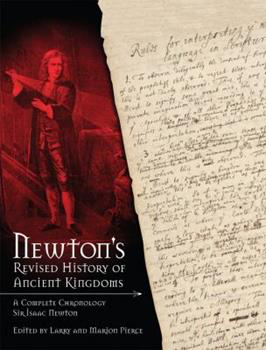
3:16: So you’re interested in mathematical theory not to derive testable conclusions from hypotheses, as Galileo and Huygens had done, but to cover a full range of alternative theoretical possibilities, enabling the empirical world then to select among them?
IN: Yes Richard. Mathematics requires an investigation of those quantities of forces and their proportions that follow from any conditions that may be supposed. Then, coming down to physics, these proportions must be compared with the phenomena, so that it may be found out which conditions of forces apply to each kind of attracting bodies. And then, finally, it will be possible to argue more securely concerning the physical species, physical causes, and physical proportions of these forces.
3:16: So you don’t think we can ever grasp what the actual world is like but can only decide which theories work best to explain what we see?
IN: I do not think it’s explicable by mere natural causes, but am forced to ascribe it to the counsel and contrivance of a voluntary agent. The same power, whether natural or supernatural, which placed the Sun in the centre of the six primary planets, placed Saturn in the centre of the orbs of his five secondary planets, and Jupiter in the centre of his four secondary planets, and the Earth in the centre of the Moon’s orb and therefore had this cause been a blind one, without contrivance or design, the Sun would have been a body of the same kind with Saturn, Jupiter, and the Earth, that is, without light and heat. Why there is one body in our system qualified to give light and heat to all the rest, I know no reason, but because the author of the system thought it convenient and why there is but one body of this kind I know no reason, but because one was sufficient to warm and enlighten all the rest.
3:16: But couldn’t the behaviour of the planets be explained by the laws of motion you have discovered alone?
IN: No. The motions which the planets now have could not spring from any natural cause alone, but were impressed by an intelligent agent.
3:16: But why?
IN: For since Comets descend into the region of our planets, and here move all manner of ways, going sometimes the same way with the planets, sometimes the contrary way, and sometimes in crossways, in planes inclined to the plane of the ecliptic, and at all kinds of angles, it is plain that there is no natural cause which could determine all the Planets, both primary and secondary, to move the same way and in the same plane, without any considerable variation : This must have been the effect of counsel. Nor is there any natural cause which could give the planets those just degrees of velocity, in proportion to their distances from the Sun, and other central bodies, which were requisite to make them move in such concentric orbs about those bodies. Had the planets been as swift as comets, in proportion to their distances from the Sun (as they would have been, had their motion been caused by their gravity, whereby the matter, at the first formation of the planets, might fall from the remotest regions towards the Sun) they would not move in concentric orbs, but in such eccentric ones as the comets move in.
Were all the planets as swift as Mercury, or as slow as Saturn or his satellites; or were their several velocities otherwise much greater or less than they are, as they might have been had they arose from any other cause than their gravities; or had the distances from the centres about which they move, been greater or less than they are with the same velocities or had the quantity of matter in the Sun, or in Saturn, Jupiter, and the Earth, and by consequence their gravitating power been greater or less than it is; the primary planets could not have revolved about the Sun, nor the secondary ones about Saturn, Jupiter, and the Earth, in concentric circles as they do, but would have moved in hyperbolas, or parabolas, or in ellipses very eccentric. To make this system therefore, with all its motions, required a cause which understood, and compared together, the quantities of matter in the several bodies of the Sun and planets, and the gravitating powers resulting from thence ; the several distances of the primary planets from the Sun, and of the secondary ones from Saturn, Jupiter, and the Earth and the velocities with which these planets could revolve about those quantities of matter in the central Bodies ; and to compare and adjust all these things together, in so great a variety of bodies, argues that cause to be not blind and fortuitous, but very well skilled in mechanics and geometry.
3:16: So fine tuning arguments in favour of God work for you then?
IN: Kind of.
3:16: Now, if every particle of matter in an infinite space has an infinite quantity of matter on all sides, and by consequence an infinite attraction every way, then shouldn’t everything rest in equilibrium, because all infinites are equal?
IN: The generality of mankind confider infinites no other ways than indefinitely and in this sense, they say all infinites are equal; though they would speak more truly if they should say, they are neither equal nor unequal, nor have any certain difference or proportion one to another. In this sense therefore, no conclusions can be drawn from them, about the equality, proportions, or differences of things, and they that attempt to do it usually fall into paralogisms. So when men argue against the infinite divisibility of magnitude, by saying, that if an inch may be divided into an infinite number of parts, the sum of those parts will be an inch; and if a foot may be divided into an infinite number of parts, the sum of those parts must be a foot, and therefore since all infinites are equal, those sums must be equal, that is, an inch equal to a foot. The falseness of the conclusion shows an error in the premises, and the error lies in the position that all infinites are equal.
3:16: And of course Zeno has long ago shown how infinities could problematise motion - his paradox results in a proof that no finite distance can ever be travelled, which is to say that all motion is impossible. You were working before Cantor solved the problem - so how did you tackle the issues for explaining motion that arise from infinity?
IN: Another way of considering infinites is under certain definite restrictions and limitations, whereby infinites are determined to have certain differences or proportions to one another. Thus Dr. Wallis considers them in his Arithmetica Infinitorum, where by the various proportions of infinite sums, he gathers the various proportions of infinite magnitudes: which way of arguing is generally allowed by mathematicians, and yet would not be good were all infinites equal. According to the same way of considering infinites, a mathematician would tell you, that though there be an infinite number of infinite little parts in an inch, yet there is twelve times that number of such parts in a foot, that is, the infinite number of those parts in a foot is not equal to, but twelve times bigger than the infinite number of them in an inch. And so a mathematician will tell you, that if a body stood in equilibrium between any two equal and contrary attracting infinite forces; and if to either of these forces you add any new finite attracting force, that new force, how little whatsoever, will destroy their equilibrium, and put the body into the same motion into which it would put it were those two contrary equal forces but finite, or even none at all ; so that in this case the two equal infinites by the addition of a finite to either of them, become unequal in our ways of reckoning; and after these ways we must reckon, if from the considerations of infinites we would always draw true conclusions.
3:16: So you have this idea of ‘attraction’? Can you say more about what this is? It sounds occult?
IN: Attraction I understand as any force by which distant bodies endeavour to come together without mechanical impulse. There might be other systems of worlds before the present ones, and others before those, and so on to all past eternity, and by consequence, that gravity may be co-eternal to matter, and have the same effect from all eternity as at present, unless you have somewhere proved that old systems can not gradually pass into new ones; or that this system had not its original from the exhaling matter of former decaying systems, but from a chaos of matter evenly dispersed throughout all space. The growth of new systems out of old ones, without the mediation of a divine power, seems to me apparently absurd. So I use the word “attraction” here in a general sense for any endeavour whatever of bodies to approach one another, whether that endeavour occurs as a result of the action of the bodies either drawn toward one another or acting on one another by means of spirits emitted or whether it arises from the action of ether or of air or of any medium whatsoever — whether corporeal or incorporeal — in any way impelling toward one another the bodies floating therein. I use the word “impulse” in the same general sense, considering not the species of forces and their physical qualities but their quantities and mathematical proportions, as I have explained in the definitions.
3:16: Yet gravity and it’s action at a distance seems equally absurd doesn’t it, as we’ve just noted?
IN: Yes. It is inconceivable, that inanimate brute matter should, without the mediation of something else, which is not material, operate upon, and affect other matter without mutual contact, as it must be, if gravitation in the sense of Epicurus, be essential and inherent in it. And this is one reason why I desired you would not ascribe innate gravity to me. That gravity should be innate, inherent and essential to matter, so that one body may act upon another at a distance through a vacuum, without the mediation of any thing else, by and through which their action and force may be conveyed from one to another is to me so great an absurdity that I believe no man who has in philosophical matters a competent faculty of thinking can ever fall into it. Gravity must be caused by an agent adding constantly according to certain laws ; but whether this agent be material or immaterial, I will leave to the consideration of your readers.
3:16: Action at a distance sounds like a contradiction. Is that part of the problem we have accepting such a thing – that language makes it sound like a contradiction and therefore impossible (unless we're Graham Priest or Buddhist)?
IN: Those things which men understand by improper and contradictious phrases, may be sometimes really in nature without any contradiction at all: a silver inkhorn, a paper lantern, an iron whetstone, are absurd phrases, yet the things signified thereby, are really in nature. If any man should say, that a number and a sum, to speak properly, is that which may be numbered and summed, but things infinite are numberless, or, as we usually speak, innumerable and sumless, or insummable, and therefore ought not to be called a number or sum, he will speak properly enough. And yet if any man shall take the words, number and sum, in a larger sense, so as to understand thereby things, which in the proper way of speaking are numberless and sumless (as you seem to do when you allow an infinite number of points in a line) I could readily allow him the use of the contradictious phrases of innumerable number, or sumless sum, without inferring from thence any absurdity in the thing he means by those phrases. Who is Graham Priest?
3:16: A very cool Australian Buddhist dialatheist who thinks contradictions exist. When you talk of God, what do you mean?
IN: God is a relative word, and has a respect to servants; and Deity is the dominion of God, not over his own body, as those imagine who fancy God to be the soul of the world, but over servants. The supreme God is a Being eternal, infinite, absolutely perfect; but a being, however perfect, without dominion, cannot be said to be Lord God; for we say, my God, your God, the God of Israel, the God of Gods, and Lord of Lords; but we do not say, my Eternal, your Eternal, the Eternal of Israel, the Eternal of Gods; we do not say, my Infinite, or my Perfect: These are titles which have no respect to servants. The word God usually signifies Lord; but every lord is not a God. It is the dominion of a spiritual being which constitutes a God; a true, supreme, or imaginary dominion makes a true, supreme, or imaginary God. And from his true dominion it follows, that the true God is a living, intelligent and powerful being; and from his other perfections, that he is supreme or most perfect. He is eternal and infinite, omnipotent and omniscient; that is, his duration reaches from Eternity to Eternity; his presence from infinity to infinity; he governs all things, and knows all things that are or can be done.
He is not eternity and infinity, but eternal and infinite; he is not duration and space, but he endures and is present. He endures for ever, and is every where present; and by existing always and every where, he constitutes duration and space. Since every particle of space is always, and every indivisible moment of duration is every where, certainly the maker and Lord of all things cannot be never and no where.
3:16: So is God in space and time then?
IN: God is the same God, always and everywhere. He is omnipresent, not virtually only, but also substantially; for virtue cannot subsist without substance. In him are all things contained and moved; yet neither affects the other: God suffers nothing from the motion of bodies; bodies find no resistance from the omnipresence of God. ’It is allowed by all that the supreme God exists necessarily; and by the same necessity he exists always and every where. Whence also he is all similar, all eye, all ear, all brain, all arm, all power to perceive, to understand, and to act; but in a manner not at all human, in a manner not at all corporeal, in a manner utterly unknown to us. He is utterly void of all body and bodily figure, and can therefore neither be seen, nor heard, not touched; nor ought he to be worshipped under the representation of any corporeal thing. We have ideas of his attributes, but what the real substance of anything is, we know not. In bodies we see only their figures and colours, we hear only the sounds, we touch only their outward surfaces, we smell only the smells, and taste the savours; but their inward substances are not to be known, either by our senses, or by any reflex act of our minds; much less then have we any idea of the substance of God.
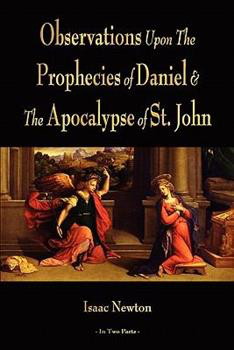
3:16: Is it because of God that the mechanical universe makes no sense to you?
IN: Yes because a God without dominion, providence, and final causes, is nothing else but fate and nature.
3:16: And so we have freewill in a sense? It’s odd, given your reputation for having created a soulless, deterministic world machine, that you reject the idea of a universe governed by mechanical necessity?
IN: Blind metaphysical necessity, which is certainly the same always and everywhere, could produce no variety of things. All that diversity of natural things which we find, suited to different times and places, could arise from nothing but the ideas and will of a Being necessarily existing.
3:16: In the Cartesian view, for all its hostility to scholasticism, science moves through nature from definition to explanation; in that of Leibniz it moves rather from principles to values; but in you it moves from descriptions to abstract generalisations. Why isn’t it fair to say that, strictly speaking, therefore, your physics never gets outside itself, and might in a sense be said to be a tautology, or at least to accomplish nothing of interest or value?
IN: Though supported by mathematics yet its physical truths can be communicated without. My friend the great Mr Locke was the first who became a Newtonian philosopher without the help of geometry; for having asked Mr Huygens whether all the mathematical propositions in my Pricipia were true, and having been told he might depend on their certainty he took them for granted and carefully examined the reasonings and corollaries drawn from them and was fully convinced of the great discoveries discovered in that book. I have laid down the principles of philosophy; principles not philosophical but mathematical. These principles are the laws and motions of certain motions and powers of forces and lest they should have appeared of themselves dry and barren I have illustrated them here and there with some philosophical scholiums.
3:16: But are propositions of your experimental philosophy supposed to be true?
IN: In experimental philosophy, propositions gathered from phenomena by induction should be taken to be either exactly or very nearly true notwithstanding any contrary hypotheses, until yet other phenomena make such propositions either more exact or liable to exceptions.
3:16: As I suggested earlier, you were pretty austere in your Treatise – writing in latin, front-loading it with mathematics and holding back from speculating without experimental evidence – but in the Opticks you kind of unleashed yourself a bit – you wrote in English and there was less math – and you used hypotheses a lot. What’s your settled position on the function of hypotheses in science then?
IN: For the best and safest method of philosophising seems to be, first diligently to investigate the properties of things and establish by experiment and then to seek hypotheses to explain them. For hypotheses ought to be fitted merely to explain the properties of things and not attempt to predetermine them except in so far as they can be an aid to experiments. If anyone conjectures about the truth of things from the mere possibility of hypotheses I do not see how anything certain can be determined in any science for it is always possible to contrive hypotheses , one after another, which are found rich in new tribulations. Wherefore I judged that one should abstain from considering hypotheses as from fallacious argument, and that the force of their opposition must be removed, that one may arrive at a maturer and more general explanation.
3:16: So your Optics is not an attempt to use hypotheses to do the explaining?
IN: Well, in the first book certainly I’m not trying to explain the properties of light by hypotheses but to propose and prove them by reason and experiments.
3:16: But in your second book you don’t hold back from hypotheses, in particular when discussing interference phenomena do you? You talk about ‘fits’ of easy transmission and easy reflection that aren’t derived by induction from the experiments don’t you?
IN: Whether any hypothesis is true or false I do not here consider. I content myself with the bare discovery that the rays of light are by some cause or other alternately disposed to be reflected or refracted for many vicissitudes. So when I introduce talk of aether note that it is more probable the aether is but a vehicle to some more active spirit and the bodies may be concreted of both together, they may imbibe aether as well as air in generation and in that aether the spirit is entangled. This spirit perhaps is the body of light because both have a prodigious active principle, both are perpetual workers because all things may be made to emit light by heat and the same cause (heat) banishes also the vital principle. This is suitable with infinite wisdom not to multiply causes without necessity
3:16: In the third book you have many hypotheses and it strikes me that your ‘hypotheses non fingo’ idea has been junked! It seems like as you wrote the Optics you have become progressively conjectural?
IN: Look, the main business of natural philosophy is to argue from phenomena without feigning hypotheses , to deduce causes from effects until first cause is reached – it should deal with questions such as : what is the place most devoid of matter? Why do bodies gravitate toward one another without dense matter between them? Why is that nature does nothing in vain and where arises all the order and beauty of the world? To what end are comets and why does their motion differ from planets? Why don’t the stars fall one upon another? How were animal bodies contrived with so much art and for what ends were their several parts? Was the eye contrived without skill in opticks and the ear without knowledge of sounds? How do the motions of the body follow from the will, and whence is the instinct in animals? Is not infinite space the sensory of a Being corporeal, living, intelligent, omnipresent? – every true step in this direction brings us closer to a knowledge of the first cause, and on that account is to be highly valued.
3:16: But weren’t you trying in the third book of the Treatise to make your substantial ideas more popularly understood?
IN: I had indeed composed the third Book in a popular method, that it might be read by many but afterwards, considering that such as had not sufficiently entered into the principles could not easily discover the strength of the consequences, nor lay aside the prejudices to which they had been many years accustomed, therefore, to prevent disputes which might be raised upon such accounts, I chose to reduce the substance of this book into the form of propositions (in the mathematical way), which should be read by those only who had first made themselves masters of the principles established in the preceding books : not that I would advise any one to the previous study of every proposition of those books.
3:16: Is your work in chemistry following the same principles as the rest of your natural philosophy? It sounds more like a mix of experimental science and magic. Is alchemy and your search for the philosopher's stone continuous with what you're doing in your chemistry, and natural philosophy? is it what we call science?
IN: Ah Richard, by the perfection of this art (which very few have attained) all natural magic may be known, and all that spirits can do except velocity, may be performed by a true philosopher, though to ignorant men it seems supernatural, and all that is natural may be known by this art, wicked spirits may be commanded and chased away, in a word, what is sublunary is to be done by it; all these things were known to Adam in his innocency, who knew this art in the highest perfection; this man our first father was in his inward part or internal man made according to the similitude of God, and to tell the plain truth, (which when you have tried it you wilt know to be so) was of the same substance and matter that the angels were, I mean the blessed angels, and the soul of man is an angel and so was called the son of God, but for his body and spirit whence they come and what they are I will set down by and by and that which concerns it.
3:16: And it's linked to medicine too isn't it?
IN: Indeed Richard. This philosophy with the most rare and healthful physic linked to true grounds and upheld by daily experience and the very marrow of true medicine, and the quintessence of marrow itself, I here present into your hands as a jewel of price to procure and preserve health, which Ptolomeus the Son of Anochus valued at so high a rate, that he gave to Erisistratus a noble Physician an 100 talents for curing Annochus. My labour is but as the apple which Acontius gave to beautiful Cydippe to make known his amorous affection, yet being tended with no less good will in all humility, I beseech you to accept of them. Thus if Solomon the wise, Moses God's secretary, Hermes Trismegistus, Melchisedec king of Salem, Geber an Arabian King, Raymond Lully an Paracelsius, Valentinus Basilius, Fryer Bacon, and Sir George Ripley a Canon, Anaxagoras and Morien,and Fryer Galfridus and Trevisan, all these were since Noah's flood, and many more could I name before the flood that had this art and all the seven liberal sciences, and if all these can draw no belief let the envious quarrelling critics of this age who relish nothing but what pleases their own phantasy say what they will, for their sayings are not to be credited.
3:16: To bring this to a conclusion could you recommend to us five books that will take us further into your philosophical world?
IN:
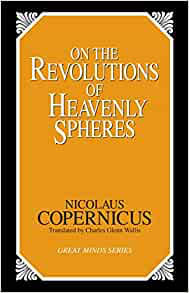
Copernicus,
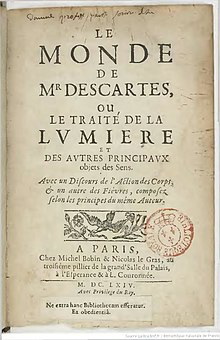
Descartes,
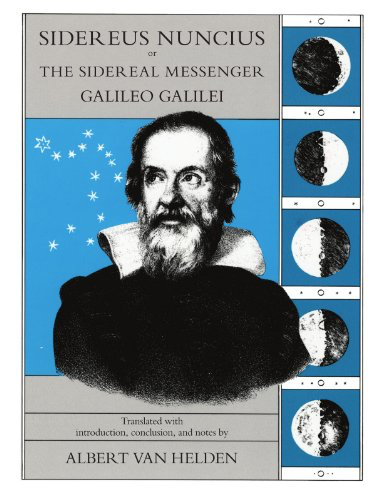
Galileo,

Snyders Metamorphosis,
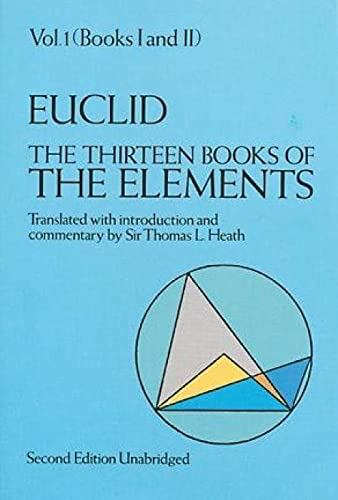
Euclid
Previous Interviews: Berkeley, Hobbes, Locke, Cudworth, Hume, Leibniz, Leporin Erxleben, Fichte, Schiller, Herder, Kierkegaard, Schelling, Kant, Dilthey, Marx, Descartes, Hegel, Schopenhauer, Nietzsche
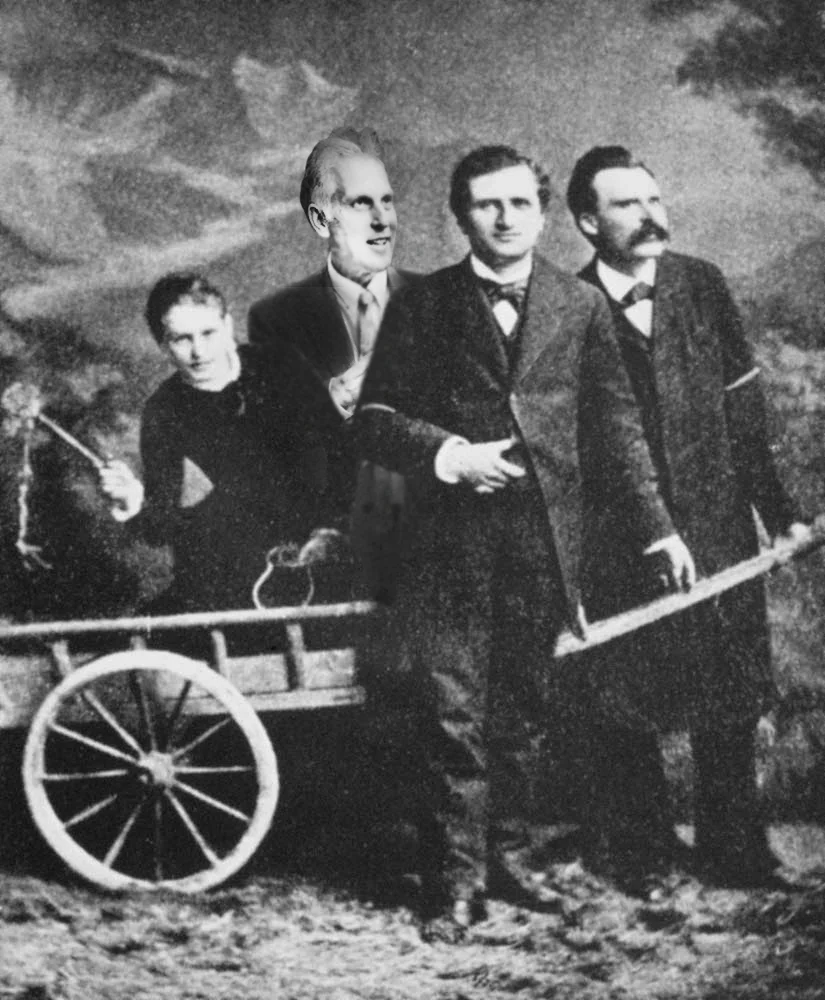
About the Author
Richard Marshall is still biding his time.